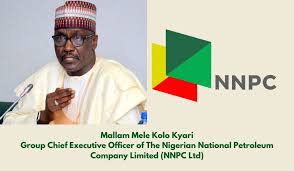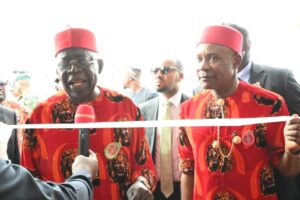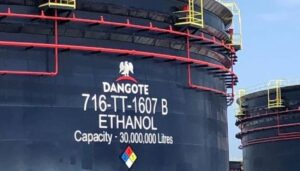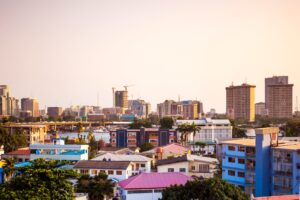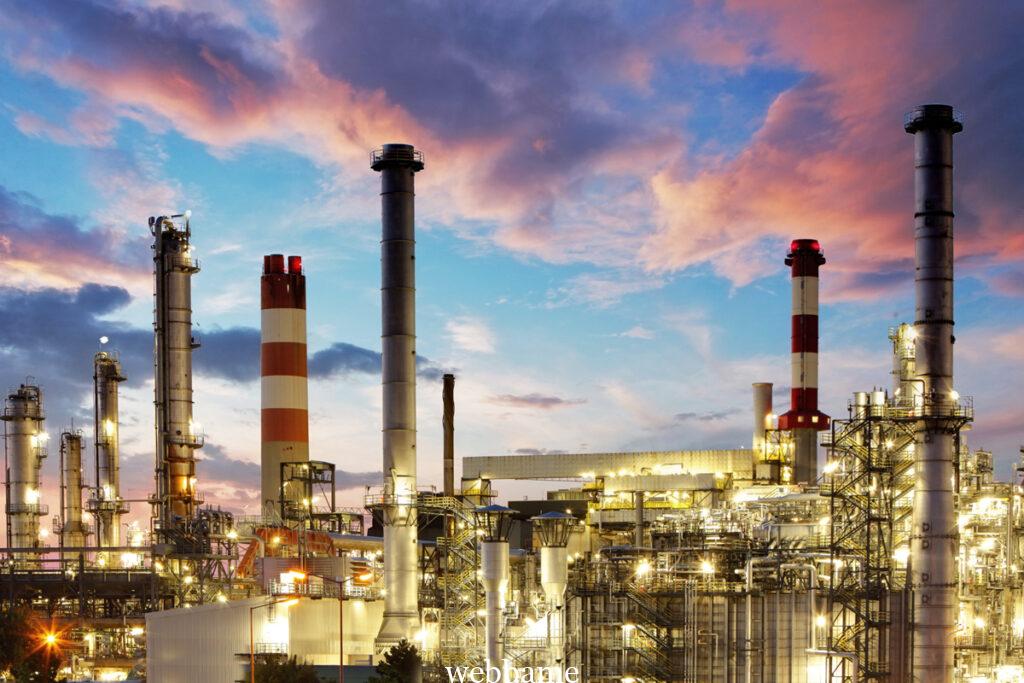

OPINION : POLICY OPTIONS FOR INCOMING PRESIDENT: OIL REFINING —
PROF OLUFUNMILADE
BY PROFESSOR FEMI OLUFUNMILADE
Of all the failings that critics of the Buhari administration have highlighted, none has been more troubling than what looks like his abject failure in the oil sector.
In eight years, President Muhammadu Buhari didn’t succeed at making any of our four refineries refine a litre of oil. But under his watch there has been no delay in the payment of the salaries of idle staff of the refineries to the tune of billions of Naira.
He has also not succeeded in ensuring the partnership of sorts he got the federal government to enter into with the Dangote mega-refinery to work before he leaves office. We recall that in his early days in office, he had supported this particular private sector project with a $2 billion Chinese loan guaranteedby the Nigerian state, and, subsequently, NNPC buy-in to the tune of 20 percent equity, translating to injection of $2.76 billion.
It is not for want of efforts that the refineries aren’t working under Buhari as Minister of Petroleum since 2015. Maybe he started looking into making them work rather too late. In April 2021, six years into his presidency, he got the Federal Executive Council to approve a $1.5 billion contract for the rehabilitation of the Port Harcourt refinery, with the refining capacity of 210,000-barrel per day, to an Italian firm, Tecnimont SpA (The Vanguard, 6 April, 2021). Sometimes in February this year, the NNPC said the refinery would commence operations in the second quarter of 2023, meaning post-Buhari era (The Guardian, 16 February, 2023).
Similarly, four months later, he got FEC to award another $1.5 billion contract to yet another Italian firm, Saipem, for the rehabilitation of Warri and Kaduna refineries, each with refining capacity of 125,000 and 110,000 barrels per day, respectively. The completion timelines for these are 21, 23, and 33 months. Meaning they won’t work until Buhari hands over to the next president.
Curiously, however, President Buhari is reported two months ago in Leadership.ng to have signed another MoU with Daewoo of South Korea during the Bio Summit in Seoul to rehabilitate the same Kaduna refinery. The report goes thus: “Valued at US$740.6 million, KPRC Quick-fix Contract, scheduled for completion in 21 months, will enable the refinery to operate at minimum capacity utilisation of 60 per cent”. I don’t want to conclude that the same job is being duplicated. Rather, I would think the NNPC hasn’t carried the public along sufficiently on these mega-contracts.
I’m trying to get somewhere shortly. When you sum up the refining capacities of the three refineries under rehabilitation, you have 445,000 barrels per day. Now, the litres of refined oil accruable from a barrel of Nigeria’s Bonny Light sweet crude is 159, but let’s limit it to 158 and the result will be 70,310,000 litres refined oil per day. If you further add the 650,000 barrels per day Dangote Refinery to the mix, you have extra 102,700,000 litres per day that can be exported. .
In other words, the combined capacities of Warri, Kaduna, Port Harcourt and Dangote refineries can meet our daily consumption need for petrol and leave enough for export. I say this because in defence of the Nigeria National Petroleum Company Limited (NNPCL), as it is now called, its Managing Director, Mele Kyari, had said the daily consumption figure of PMS by Nigerians is 68 million litres per day (The Cable, 4 September 2022). That’s some 2 million liters below our refining capacity. Kyari made this clarification following accusation of dubious consumption statistics by the NNPC from the Comptroller General of Customs, Col. Ahmeed Ali (Rtd). Kyari swore he was ready for forensic audit of the NNPCL to prove Ali wrong.
The essence of the foregoing is to demonstrate that the incoming president, Bola Ahmed Tinubu, can end the subsidy regime in the oil sector without attempting to upend the stability of his own administration and the well-being of poverty-stricken Nigerians by removing subsidy. A decision that will allow those who have become billionaires from the common man’s suffering as importers of refined oil to get richer still through so-called market-driven pricing. I can foresee a litre of PMS hitting N1,000 or more sooner than later.
President Tinubu’s approach to making petroleum products available should be to set up a Domestic Oil Refining Committee (DORC) to ensure that all the refineries contracted out for rehabilitation, as well as the Dangote mega-refinery in which Nigeria has 20 percent equity in addition to $2 billion FG-guaranteed loan, start refining oil at their optimal capacities within agreed timelines. Happily, he’s had a vantage point experience of best practices in the oil sector as an auditor – a financial policeman job – at Mobil and Saudi Arabia’s ARAMCO.
He needs the DORC comprising germane experts with public and private sector experiences in the oil sector, drawn from home and abroad, to ensure Nigeria is no longer shortchanged by saboteurs who have so far made it impossible for us to refine our domestic oil needs by grounding our refineries after over $25 billion spent on their so-called turnaround maintenance that have only turned billions of dollars and Naira into the bottomless pockets of oil importers and their insider collaborators.
On 9th September 2022, Dataphyte, an online medium, reported on the NNPC as follows:
“The Oil Company went on to state that ‘N297 was spent per litre’ on petroleum subsidy between January and August 2022. And then stated that without subsidy fuel pump price will be N462/litre.”
Lately, the oil importing buccaneers have floated another figure around, putting the cost per litre of PMS at N750 if Tinubu would go for the removal of subsidy. Clearly, the issue isn’t economics. It’s about greed. A sage said, “This world has got enough resources to meet everyone’s need, but not enough to satisfy everyone’s greed.”
Nigeria has got enough refineries to refine enough oil to meet the consumption needs of 200 million Nigerians, as well as earn a decent quantum of foreign exchange from the export of refined products as in days of yore, aside the traditional revenues from crude. But, it hasn’t enough to satisfy the greed of the few!
For years, I’ve searched for the basis upon which the American intelligence establishment had reportedly predicted Nigeria’s breakup in this dispensation. Finally, I stumbled on what looks highly plausible. It’s the corruption in Nigeria’s oil sector. Karl Marx, on account of the class struggle between the capitalists and the proletariat, famously sai: Capitalism has sown the seed of its own destruction.
The American doomsday predictors understood that with the bulk of our crude oil being stolen, the time was imminent when the NNPC would have no money to put in the federation account for sharing in Abuja by the federal, state, and local governments.
They knew that, in spite of the determination of any government in power over the years to fix our refineries, saboteurs therein representing oil importing buccaneers will not let them work. In which case, we have to use all our crude oil revenues and more to import refined products.
They knew that since our Naira keep falling, a time will come when costs attendant to high cost of dollars required to import refined petroleum products, which the government has to bear as subsidy, will become unsustainable and the idea of transferring it to the Nigerian consumers, will lead to an unprecedented upheaval.
Tinubu should, therefore, be wary of the poisoned chalice of the Buhari administration proposed for him to drink as soon as he’s sworn in as president on 29th May 2023.
The Minister of Finance, Budget, and Economic Planning, Dr. Zainab Ahmed, has said at various fora that the subsidy subsidy will be over from June 2023! The question is, Why didn’t she terminate it under the watch of her principal, President Muhammadu Buhari? It’s because of its ominous consequences. The cataclysmic rumpus that will follow – in an economy where transportation, power supply, industry, hospitals, universities, informal sectors (welders, hair salons, frozen foods, pepper grinders, bakeries, printers, vulcanisers etc) all rely on PMS and diesel, as the case may be – can only be left to the imagination!
Removal of subsidy, as things stand, means oil product-pricing will be at the pleasure of oil importers and the vagaries of a falling Naira and volatility in the global oil market combined! It means a litre of oil can rise beyond their coveted N750 to N1,000 and more. Diesel already suffers what we may call a runaway price per litre, hovering close to N1,000 – the root of the inflation besetting our domestic industrial products. Even some bank branches now close earlier than usual to save money on diesel. I may not know about your location, but I know that all the banks in Okada where my university is situated do. Five of them! By 2pm their doors are shut. Meanwhile, they open to customers at 10am.
Before he embraces the kiss of death that subsidy removal represents, Tinubu should ask for answers as to why no administration hitherto (including Buhari’s) had embraced full-blown removal of subsidy and were only able to increase the pump price. And doing so at great pains, sometimes, and even reviewing it downwards to calm frayed nerves. Obasanjo, Yar’Adua and Jonathan had had cause to do a downward review in their time. Sometimes an upward review came with compensatory packages to a citizenry on edge.
General Sani Abacha, unarguably Nigeria’s foremost maximum ruler, wasn’t an exemption. He didn’t overstretch his luck by removing subsidy peremptorily. He first engaged organised labour and other stakeholders, leading to his commitment to put monies saved on the upward review of pump price into the coffers of a Petroleum Trust Fund he would set up as an intervention agency for infrastructure etc, which he did in 1994.
Similarly, President Goodluck Jonathan, in order to sell his plea to raise pump price, set up a Subsidy Reinvestment and Empowerment Programme (SURE-P) in 2012.
I’m not saying Tinubu should abandon full-blown subsidy removal for partial subsidy removal like Abacha and Jonathan that came with compensations. My advocacy is he should get smarter in ending the subsidy regime by making our refineries work. If they work, the subsidy will automatically go.
The NNPC said the production cost per barrel of oil in Nigeria is $17. Its MD, Mele Kyari, said his goal is to push it down to $10. In Saudi Arabia it’s about $8. Ours is, perhaps, the highest. Even at the $17 we can get pump price at not more than N150 if we fix our refineries to refine our needs locally. As said earlier, a barrel can yield 158 litres of PMS.
I want to convert the $17 to Naira by current black market rate to be realistic. It’s around N750. So, $17 equals N12,750. Divide this by 158, what you get is: N80.69 per liter. Let’s approximate to N81.
Now, we need to add the refining cost of the $17 per barrel crude at the refineries into PMS. The world average refining cost per oil barrel is between $3 and $5. Given our own peculiar ways, I would like to generously put the cost at $10. This translates to N7,500 at the black market rate. Add this to the cost of the raw crude earlier given (N12,750), you arrive at N20,250. Divide this again by 158 liters accruable from a barrel of Bonny Light crude and you get N128 pump price. This is possible!
In other words, President Tinubu, if he switches his mindset from removing subsidy in the sense of raising price to the roof to please the oil importing buccaneers and have a balanced budget, can actually achieve a no-subsidy regime by making all our refineries work without the encumbrance of saboteurs. Herein lies the hope of salvation of the Nigerian state from collapse and the survival of its people.
He can even bring down the PMS price to the Yar’Adua price (N65 per litre); and diesel to no more than N200 per litre, if he sells the crude to the producing companies free of charge. After all, the crude is a free gift of God. With that, the production cost of a barrel of crude can be as low as Saudi Arabia’s $8.
If he wants to unleash our latent production capacity as enterprising people, let Tinubu do this and a huge economic transformation will be set in motion naturally in Nigeria.
The least a President Bola Tinubu can do is not to add to the burdens of Nigerians. He has the choice of being on the side of the people or their exploiters. In choosing his financial and economic aides, he should prioritise those with milk of compassion for the downtrodden and the impoverished, which is what most Nigerians have become under the gross mismanagement of our economy from the Jonathan’s through the Buhari years.
He should be wary of those economists who deal with statistics with no concern for how they affect human beings. Those are the type who would paint such a wonderful picture of a market-determined value of the Naira, discountenancing its potential for the devaluation of the living standards of a people who already had their backs pinned firmly on the wall. He should go for the types who worked with the late Abacha and got the Naira stabilised at N82 to a dollar throughout his administration. I add this bit on the Naira because if its value falls, it will eventually affect oil pricing as most of the production inputs in the oil value chain – aside the crude and a measure of manpower – are procured in dollars. There is a linjsge between monetary stability and stable oil product-pricing in the domestic market.
President Ronald Reagan once hired a PhD student working on a thesis on Dollar Stabilisation at Harvard University as an economic aide when the currency was suffering instability.
For the sake of my children who have no other country than Nigeria, I wish our incoming president the best of lucks!
**** Olufunmilade is a Professor of International Relations and Strategic Studies at Igbinedion University Okada, Nigeria.
Email: *femiology@gmail.com*

